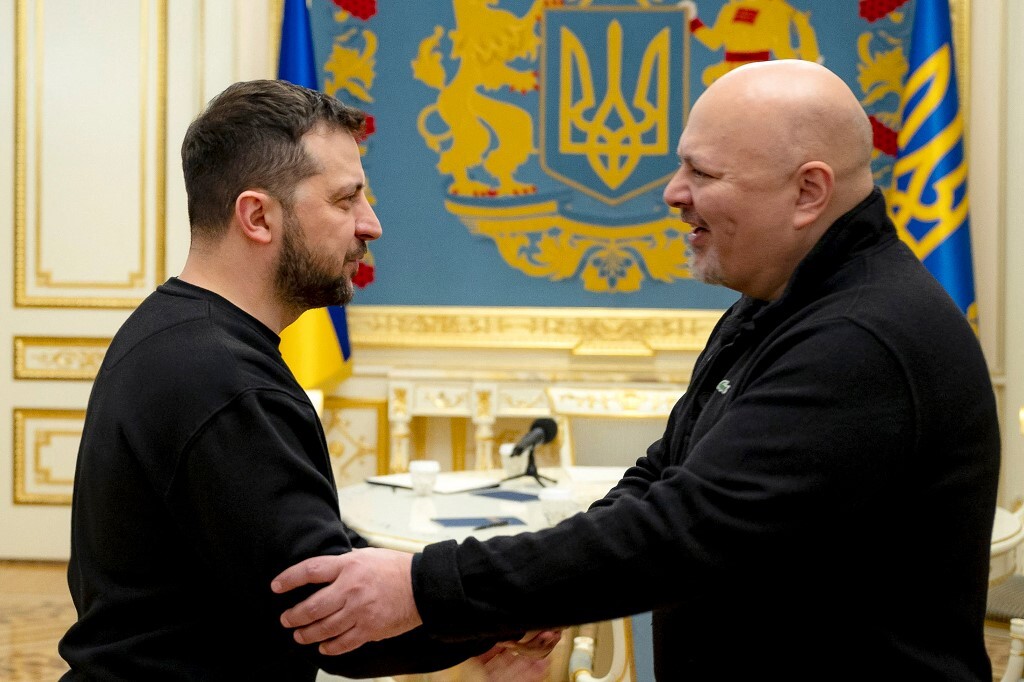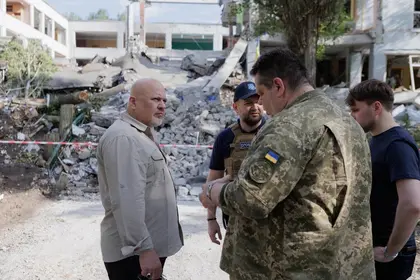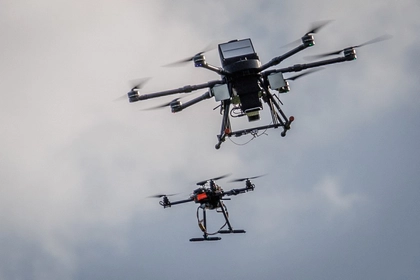On March 17, the International Criminal Court (ICC) in The Hague issued arrest warrants for Russian President, Vladimir Putin, and his Commissioner for Children’s Rights, Maria Lvova-Belova. The alleged offences concern the forced transfer of Ukrainian children as a war crime.
Though it had been indicated several days earlier that warrants were imminent, few had expected the first to concern Putin himself. In this regard, the court’s chief prosecutor, Karim Khan, has shown himself capable of wading confidently into politically murky waters and has set in train what is likely to be a lengthy process of scrutinizing
JOIN US ON TELEGRAM
Follow our coverage of the war on the @Kyivpost_official.
The Kremlin quickly moved to downplay the significance of the warrants, pointing out that it has not ratified the court’s founding Rome statute and nor have many of its allies. This did little, however, to mask the very real implications of the warrants. Some 123 of 195 countries have ratified the ICC’s statute and a number of others have signed but not ratified.
Putin and anyone else for whom the ICC issues a warrant therefore risks being detained and transferred to The Hague if they visit any of those countries. ICC warrants might also form the basis of extradition requests even to countries which are not members of the court.

Russia Tries to Sabotage Moldova’s European Ambitions as It Did for Georgia and Belarus
Since the onset of the COVID-19 pandemic, Putin has travelled little beyond the former Soviet republics, but even there his travel options will now be constrained. A future warrant for Russian foreign minister, Sergey Lavrov, for example, would most likely prevent him from carrying outhis functions and require his replacement. Warrants for sitting and former presidents, which seemed improbable when announced, have often proved very real; those for Slobodan Milosevic of Serbia and Charles Taylor of Liberia being the most prominent.
For the leaders of many states, relations with Putin will now be even less politically acceptable than they have been since the full-scale invasion began in February 2022. Thischilling effect will extend to many leaders who have evidenced a desire to compromise with Putin and possibly to compromise Ukraine’s future.
The warrants also, arguably, increase the likelihood of machinations within Russian elite circles. Putin the pariah is becoming more and more toxic to any aspirations they might have of normalizing relations with the West at some point in future.
Ukrainian and international investigators believe they have already gathered ample evidence of additional international crimes committed by Russia in the course of its war against Ukraine. That evidence extends to war crimes, crimes against humanity, genocide and aggression.
 In this handout photograph taken and released by Ukrainian Presidential Press Service on February 28, 2023, President of Ukraine Volodymyr Zelensky (L) welcomes Prosecutor of the International Criminal Court (ICC) Karim Khan (R) during their meeting in Kyiv.Handout / UKRAINIAN PRESIDENTIAL PRESS SERVICE / AFP
In this handout photograph taken and released by Ukrainian Presidential Press Service on February 28, 2023, President of Ukraine Volodymyr Zelensky (L) welcomes Prosecutor of the International Criminal Court (ICC) Karim Khan (R) during their meeting in Kyiv.Handout / UKRAINIAN PRESIDENTIAL PRESS SERVICE / AFP
Two days before the ICC warrants were issued, the United Nations Human Rights Council’s Independent International Commission of Inquiry on Ukraine reported that it had found evidence of widespread war crimes and other violations of international humanitarian and human rights law. It is widely expected that further ICC warrants will be forthcoming and that additional offences may be added to Putin’s warrant.
The problem of the crime of aggression
It is clear, however, that the ICC is not able to prosecute the crime of aggression: the waging of war by one state against another which is not in self-defense; a fundamental breach of the United Nations Charter and the foundationalinternational
While a special tribunal was initially viewed with skepticism, the landscape of opinion shifted considerably after powerful evidence emerged of atrocities committed in the Ukrainian towns of Bucha, Borodyanka and elsewhere.
Soon after, there followed the evidence of the systematic transfer of Ukrainian children to Russia, Russia’s targeting of medical, educational and other civilian facilities, mutilation of Ukrainian prisoners of war and the wholescale obliteration of cities like Mariupol, Severodonetsk and Ba
As a result, there is now considerable momentum behind the project to create a special tribunal, which is seen by an increasing number of influential states as a legally feasibleand morally imperative way to address Russia’s aggression.
The first concrete step towards creating the tribunal has already been taken with the announcement of an International Centre for the Prosecution of the Crime of Aggression, also to be based, like the ICC, in The Hague. By the summer of 2023, the center should begin
As the United Nations Security Council is effectively paralyzed by
Further resolutions by the General Assembly may be required and, for that reason, the Ukrainian government and parliamentary representatives, together with their international partners, are now busy engaging General Assembly member governments and parliaments to draw attention to the crimes resulting from Russia’s aggression. There is also an intention to explain the importance of not allowing impunity for it. A hybrid Ukrainian-international tribunal is also possible.
States supporting the creation of a special tribunal havebeen careful to insist that it does not undermine the work of the ICC and, indeed, that any new mechanism is complementarity to the permanent court as it investigateswar crimes, crimes against humanity and genocide. In practical terms, it is envisaged that complementary will involve considerable sharing of evidence across the road in The Hague.
The prospects for accountability for the whole gamut of Russia’s alleged crimes against Ukraine appear to be improving by the week. The experience of investigations and prosecutions at the ICC and the various ad hoc tribunals – especially those for Yugoslavia and Rwanda – suggests that the shame of Russian crimes, and the inevitable attempts to evade justice for them, will be in the news for at least a generation to come; on TV sets in bars,airport lounges, corpo
Richard Cashman is an Adjunct Fellow at the Centre for Defense Strategies.
The views expressed are the author’s and not necessarily of Kyiv Post.
You can also highlight the text and press Ctrl + Enter






